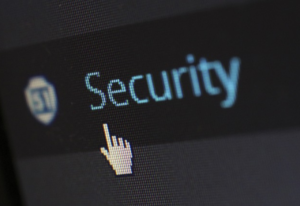 Most people expect to enter a username and password to access secure networks and accounts online. They also expect that password protection for sensitive data will stop unauthorized access.
Most people expect to enter a username and password to access secure networks and accounts online. They also expect that password protection for sensitive data will stop unauthorized access.
Unfortunately, single-factor authentication is no longer enough to fully secure your business networks and resources. Password theft is one of the leading causes of data breaches, with hackers using stolen credentials to access sensitive information and wreak havoc on businesses. However, by taking a multi-layered approach to cyber security that uses multi-factor authentication, you stand a better chance of thwarting bad actors and keeping your business data safe.
What Is Multi-Factor Authentication?
The typical username and password combination that we’re all familiar with is a type of single-factor authentication. In order to access a protected asset, you only need a single factor (in this case, the password) to prove you have permission to do so.
Multi-factor authentication requires several pieces of information for user verification. In most cases, these include the username and password, as well as another token, like a unique code. These additional authentication factors help ensure that even in the event of a password compromise, whoever has the password won’t be able to go any further because they don’t have the additional details.
Authentication factors can come in a variety of forms, including:
- Biometrics, such as a fingerprint or facial recognition
- Mobile apps that continuously generate one-time passwords to enter in addition to your standard username and password
- SMS texts, which deliver a one-time code to a mobile device
- Hardware tokens, which are physical devices that generate one-time codes or that you insert into a device in addition to a password
- Security questions that the user establishes at account setup
Why You Need Multiple Security Layers
Ultimately, implementing several security layers helps reduce the risk of many common cyber threats that can cost your business time and money. Considering that many small and midsize businesses never fully recover from a cyber attack, investing in multi-factor authentication is an important element of a robust approach to security.
Using multi-factor authentication offers several major advantages.
Increased Protection
Even if you run a small business, there’s always a threat of attack. Hackers use a variety of methods to steal passwords, like brute force attacks, social engineering, and date packet sniffing, but if you have multi-factor authentication in place, simply getting those passwords isn’t enough to get into your network.
Requiring additional information before granting access to sensitive assets allows your cyber security team to focus on other priorities. It’s just one tool of many that they can use to address the barrage of threats coming from every direction.
Simplicity
Using this type of security is easy. It takes the typical user only a few seconds to generate and enter a code. Considering the many hours it takes to respond to a data breach, not to mention the impact that one will have on your business’s reputation and bottom line, there’s really no comparison.
Cyber threats are always evolving, but multi-factor authentication is a simple and effective way to proactively protect your business.




